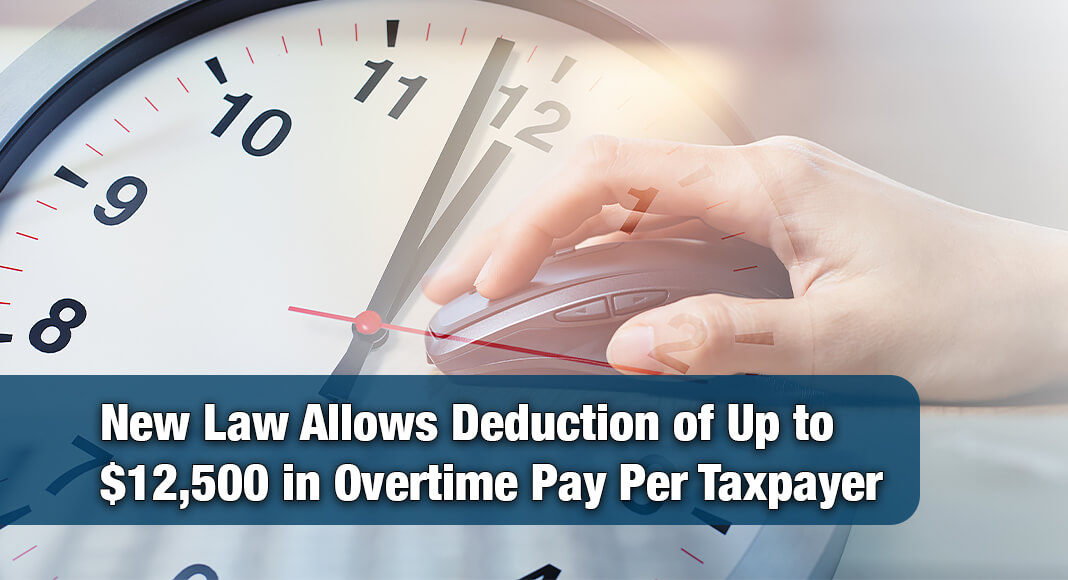
Mega Doctor News
Texas Border Business / Mega Doctor News
The “One, Big, Beautiful Bill Act” (OBBB), signed into law on July 4, 2025, introduces a new deduction aimed at workers who earn overtime pay. According to the legislation, “for years 2025 through 2028, the Act provides for (up to) $12,500 ($25,000 if joint return), above-the-line deduction for qualified overtime compensation.”
Overtime pay generally refers to wages earned for hours worked beyond the standard 40-hour workweek. In most cases, overtime is paid at a higher rate, typically time-and-a-half or more, for each additional hour. Under prior law, overtime wages were treated the same as regular wages and fully subject to federal income tax. The OBBB Act changes that by allowing workers to deduct part of their overtime earnings from taxable income.
The law specifies that “generally, [the deduction] is based upon ‘additional’ rate of pay for over 40 hours worked in a workweek and only the qualified ‘overtime premium’ portion is deductible.” This means the deduction applies to the premium portion of overtime pay, not the base hourly wage. For example, if a worker’s regular pay is $20 per hour and their overtime rate is $30 per hour, the extra $10 per hour counts as the “overtime premium” and may be deductible.
The deduction is considered “above-the-line.” This is important because it reduces adjusted gross income before calculating other tax credits and deductions, and it can be claimed regardless of whether the taxpayer itemizes or takes the standard deduction. Workers do not need to change how they file to benefit from the new rule.
The law caps the deduction at $12,500 per taxpayer each year. For married couples filing jointly, the cap doubles to $25,000 if both spouses earn overtime pay. However, as with other new provisions in the OBBB Act, the benefit phases out at higher income levels. The statute notes that “the deduction is subject to phase-down if taxpayers’ adjusted gross income exceeds $300,000 for joint-filers ($150,000 for singles).”
The financial impact could be significant for many working households. For example, a single taxpayer earning $45,000 in base salary and $8,000 in overtime premiums could deduct the full $8,000, reducing taxable income from $53,000 to $45,000 before applying the standard deduction. A married couple with combined overtime premiums of $20,000 could deduct the entire amount, lowering their taxable income substantially.
Supporters of the provision argue that it rewards hard work and provides relief to employees in industries where overtime is common, such as healthcare, manufacturing, and emergency services. Because overtime often comes with additional stress or longer shifts, the deduction is seen as a way to recognize the burden while easing the tax impact.
Critics caution that the deduction is temporary, applying only to tax years 2025 through 2028. Unless extended, the rule will expire, and overtime pay will once again be fully taxable. Some also raise concerns about complexity in tracking exactly what portion of wages counts as the “overtime premium.”
Still, the change represents a substantial new benefit for millions of American workers. As the law states directly, “for years 2025 through 2028, the Act provides for (up to) $12,500 ($25,000 if joint return), above-the-line deduction for qualified overtime compensation.”
See related stories:











